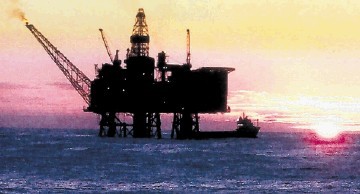
HERE WE go again, it’s Offshore Europe time and with it, an embarrassment of invitations to dinners and other corporate celebrations.
I truly hope OE 2011 really is a celebration … a modest self-reward for Britain’s most successful, strategic industry, despite chancellor George Osbourne’s dismissive arrogance towards the sector.
Any politicians and civil servants attending this time had better be respectful of the industry’s fabulous achievement.
Meanwhile, a dispute between two North Sea firms over the use of infrastructure currently highlights a recurring issue that has rankled companies of all sizes across the industry, especially the minnow operators.
Back in February, Endeavour International said that the Department of Energy and Climate Change (DECC) had approved the Rochelle field development plan (FDP) for block 15/27 in the Central North Sea, otherwise known as East Rochelle.
Nothing unusual there, you might think. But hark back to May last year, when Endeavour set a precedent by asking the UK Government to settle a dispute over the cost of transporting gas from East Rochelle to market, via the Scott field platform.
The row blew up even though Nexen has a 44.4% interest in the field, while Endeavour holds the remaining 55.6%.
And it didn’t stop the FDP being approved, even though the dispute was ongoing.
You might think it would be a no-brainer, with the parties keen to strike a deal allowing Endeavour to pay Nexen and its partners in Scott a fair rent for the use of the facilities, with Nexen falling over itself to make sure this happened because of its own considerable stake in the field.
But they didn’t, hence the unprecedented move by Endeavour to get DECC to examine the case and deliver a determination. As I write this, a determination has yet to be published, though it is thought that a way forward has been found.
If so, it’s not before time.
At the heart of this case is an issue that increasingly angers smaller companies: the hefty charges often demanded by the owners of North Sea infrastructure for processing/transporting hydrocarbons from third party satellite developments.
Rules regarding access to the UK’s offshore pipeline network and platforms date back 35-plus years.
Even though it has been on the statute books since 1975, that referral process had, until Endeavour, never before been invoked, probably because the North Sea was dominated by major players with relatively equal bargaining power and the ability to secure backroom deals.
It adds up to a voluntary code of practice (ICOP) bodge, and that’s wrong.
For Endeavour it all became too much. So the company filed for a determination. DECC said it would make a decision within 10 weeks. The weeks came and went, but nothing. Now 16 months have passed since filing, and still nothing. I understand that the determination cannot be made due to problems in the process.
Reach into the history of the Rochelle affair one finds that discussions have dragged on between the two camps for some four years.
This is much too long. In fact, it is nonsensical. Rochelle demonstrates that the process, as it stands, is not fit for purpose. Indeed it seems that the application failed due to a number of gaps in the legislation itself.
Fortunately, the Energy Bill, due to be passed later this year, attempts to consolidate and plug these gaps, but questions remain.
Firstly, will the Energy Act go far enough to make the existing approach fit for purpose?
Secondly, is the whole concept of a voluntary code of practice, such as ICOP, appropriate to maximise recovery?
And lastly, rather than throwing the baby out with the bath water, should we aim for a system which allows fair return on investment?
For example, where facilities have already recovered capital costs, tariff should be set at a level that provides compensation for incremental costs and risks linked with the new production.
However, where infrastructure owners have made an investment, they should be entitled to a fair return on that investment.
That said, one step short of robbery is unacceptable, and doubly so given the preaching that goes on within the UK oil and gas industry regarding fairness and decency between companies, even if they are competitors.
Failure to establish a workable “fall back” determination process will lead parties to seek other less desirable avenues, such as competition and European law and perhaps even the introduction of a common carrier (utility style) regime, similar to those fully regulated regimes on the continent, which would probably be at odds with the inter-related nature of ownership of production and transportation infrastructure.
Now do we really want Brussels meddling in North Sea affairs any more than is already the case? I think not. That being so, it really is time for DECC and the industry to get their act together.
Of course, rows mean business for lawyers. Among them is Kenny Paton, a partner in Bond Pearce. He has been intimately involved at many of the most recent successful tie-back negotiations on the UK Continental Shelf, including the Rochelle/Scott deal.
Although he was unable to comment on that particular negotiation he said Endeavour’s action has jolted the system in a positive way.
Mr Paton told me that infrastructure owner attitudes appeared to be mellowing. Not surprising given the very real and undesirable prospect of government stepping in and forcing deals.
Hopefully the precedent set by the Endeavour affair really will help change the business model for tie-backs to something which better recognises the real balance of risk and reward involved.